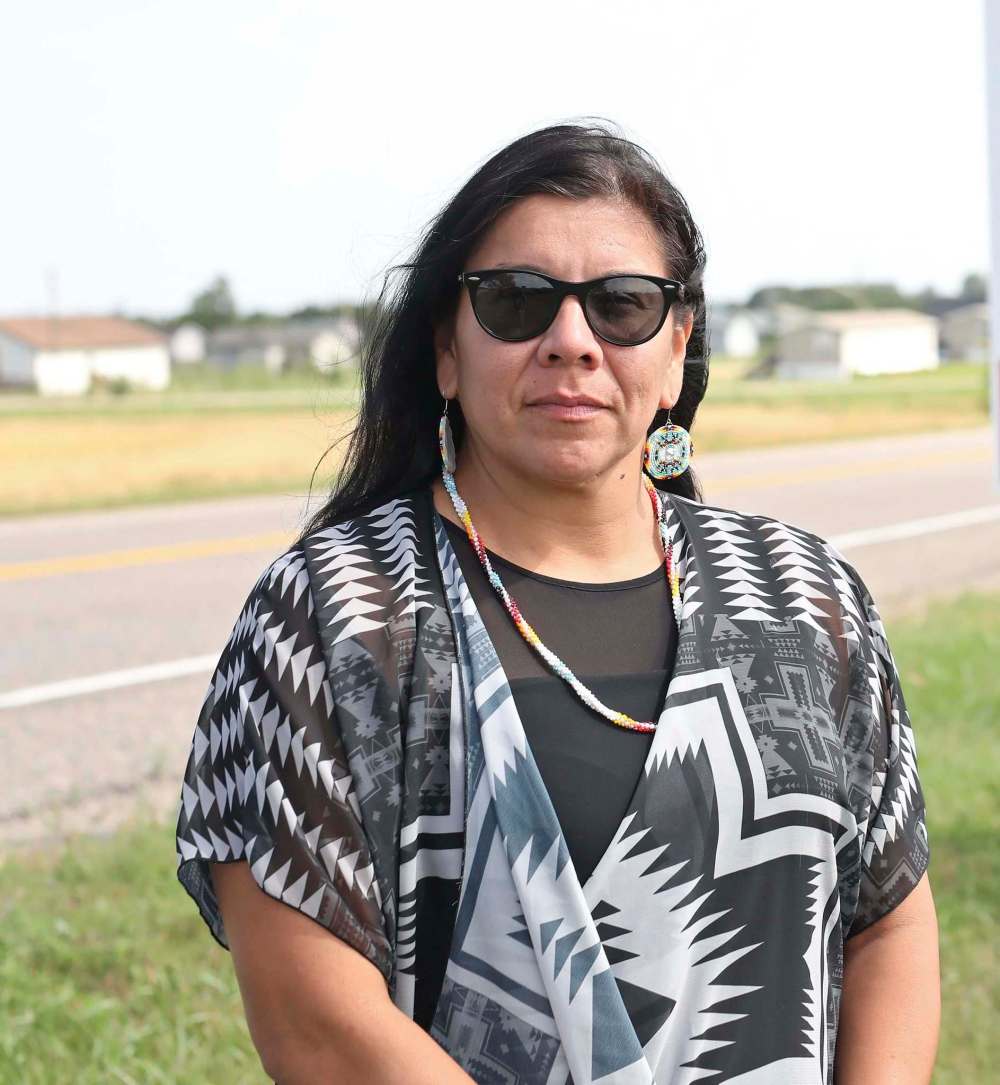Buried Indigenous children in Brandon need ‘stories told’
Advertisement
Read this article for free:
or
Already have an account? Log in here »
To continue reading, please subscribe:
Monthly Digital Subscription
$19 $0 for the first 4 weeks*
- Enjoy unlimited reading on winnipegfreepress.com
- Read the E-Edition, our digital replica newspaper
- Access News Break, our award-winning app
- Play interactive puzzles
*No charge for four weeks then billed as $19 plus GST every four weeks. Offer only available to new and qualified returning subscribers. Cancel any time.
Read unlimited articles for free today:
or
Already have an account? Log in here »
Hey there, time traveller!
This article was published 01/06/2021 (1304 days ago), so information in it may no longer be current.
OTTAWA — More than 100 Indigenous children are likely buried in unmarked graves in Brandon, according to preliminary data from some of the First Nations leaders who want help to locate lost relatives, and heal from the pain.
Meanwhile, the Manitoba government is resisting calls to follow Alberta and Saskatchewan in committing to help pay for burial-site searches.
“The children buried at these sites must have their identities restored and their stories told,” Sioux Valley Chief Jennifer Bone said in a Tuesday video message to her Dakota community.

Her reserve has spent years trying to track burial sites in Brandon through archeological surveys and archival documentation.
Bone announced Tuesday the band suspects 104 bodies are in three burial sites. The band is planning a news conference today to detail its findings and research plans.
“We must honour the memory of the children who never made it home by holding the government of Canada, churches, and all responsible parties accountable for their inhumane actions,” Bone said.
Last week, a B.C. band made global headlines when it announced a ground-penetrating radar search had found evidence of 215 children buried in unmarked graves near a former residential school in Kamloops.
The Tk’emlúps te Secwépemc band told the Free Press the survey was part of a $40,000 federal grant administered by the Canadian Heritage department.
Such searches generally involve using a machine that resembles a lawnmower to scan the ground using radiowaves, which can reveal anything from metallic objects to soil disturbances that suggest the presence of a skeleton.
In Manitoba, the northern Cross Lake band wants federal funding to undertake a similar search at the former residential school site on its territory, as well as schools in other communities where the band’s children were sent before dissolution of the system.
“It’s opened up a lot of wounds. We’re looking for answers, and we want to move forward,” said Chief David Monias.
“We need to go further in a timely way — find the remains, and get them back home.”
The Cross Lake school burned down twice, killing 12 children in 1930, while another 18 children have been identified by family members as having died at that school.
Monias noted children were also sent from Cross Lake to places such as Brandon, where they probably knew no one and missed the landscape of the Canadian Shield.
“As they were taking their last breath, many of them were wondering, ‘Where’s my mom, where’s my dad? Who is this stranger?’”
On Tuesday, Manitoba Premier Brian Pallister said he’d work with Indigenous leaders, families and Ottawa to help locate graves and fulfill the demands of the Truth and Reconciliation Commission of Canada.
Yet, Pallister did not follow his conservative brethren in pledging to help fund ground-radar searches.
“We’ll partner with the federal government. The TRC recommendations are absolutely clear as to who has to take the lead here,” Pallister told reporters.
“That’s not passing the buck; that’s something that we’ve raised with the federal government.”
In the Manitoba legislature, the NDP Opposition noted the governments of Alberta and Saskatchewan pledged this week they would financially support such searches.
“Words are simply not enough,” said MLA Nahanni Fontaine.
The premier responded Fontaine was playing politics, as she had done work for the previous NDP government, which, he argued, did little about reconciliation.
“That is unseemly; it’s inappropriate; it’s just simply shameful and wrong,” Pallister said, prompting heckling.
The Assembly of Manitoba Chiefs said Tuesday it wants funding “to conduct forensic investigations on all areas to ensure that all children are found, respected and honoured.”
The AMC also said Ottawa needs to pressure the Catholic Church to turn over documents, and it will pursue an international complaint against Canada through the United Nations regarding unmarked burial grounds.
The talk of unmarked graves has brought up traumatic memories for residential school survivors, including Manitoba Sen. Mary Jane McCallum.
She told the Red Chamber there has been “a genocide of children who were never given the opportunity to live their lives, simply because they were Indian.”
McCallum said she felt constantly lonely when she was taken from her home at Barren Lands First Nation at age five. She was bewildered her family would abandon her to a strange school in The Pas.
With a shaking voice, McCallum said she eventually learned it was Canada who abandoned her, not her parents — but the children in Kamloops never grew up to have that realization.
“These were 215 beautiful, innocent trusting little spirits who believed in their hearts that it would all work out. They missed their families, and never understood how they came to be where they were.”
dylan.robertson@freepress.mb.ca
History
Updated on Wednesday, June 2, 2021 8:32 AM CDT: Clarifies reference to unmarked graves




.jpg?w=100)




